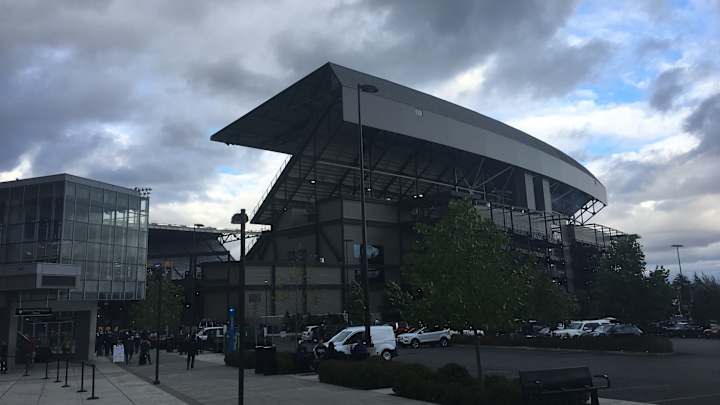For more than a century, Washington Has Always Found a Way to Play Football

The University of Washington football team faced an uncertain season right up until days before its first game.
The world was in upheaval everywhere.
People lived in great fear of the unknown, aware significant casualties were coming.
That was 77 years ago -- and now.
As modern civilization today wages an exhaustive battle against novel coronavirus, it dealt with a similar yet more predictable foe in World War II. In both instances, death harshly squeezed the sensibilities out of everyone.
While the UW remains ever hopeful of playing some sort of football schedule this fall or beyond, government proclamations in neighboring Oregon and California calling for extended limitations on public gatherings such as college classes have put everything in question.
The Huskies, however, have tried to present an overly optimistic front and hang onto the premise of a return to something resembling routine.
"They can't wait to get back into regular meetings with human beings surrounding them, and going out and doing a walk-through and doing a practice," Huskies coach Jimmy Lake said this week of his players in home confinement. "Right now, it's building the fire in these guys."
Fire is one thing, but actual opponents, and how many, is another. Discussions have been held by the UW and other Pac-12 schools concerning full or abbreviated schedules. Or conference-only competition.
Will the Huskies start on time? And who will they be able to play? Will they open against Michigan on Sept. 5?
A lifetime ago, the UW played five games in 1943 as fighting raged overseas -- three home games, another in Spokane and in the Rose Bowl.
Whitman, three service teams and USC.
"Washington will not fold," Husky athletic director Roland Belshaw vowed.
This came after traditional Pacific Coast Conference opponents Washington State, Oregon State, Oregon, Idaho and Montana canceled their football seasons for both 1943 and 1944. The schools either were short on players or shy on finances to support patchwork schedules.
The southern PCC members, USC, UCLA, Stanford and California, early on chose to stay home and play only each either other in a round-robin series. They didn't ask; they just told everyone else what they were going to do.
Reasons for this were wartime travel restrictions, gasoline rationing and limited hotel accommodations. Los Angeles officials had become angry after finding 30,000 automobiles parked at the 1943 Rose Bowl, where Georgia beat UCLA 9-0 -- in violation of the travel rules in place.
In the fall of '43, the Huskies ended up playing their fewest number of games over the past 121 seasons. At the height of World War I and a deadly flu epidemic, they competed in just two games in 1918. They've always been unwilling to cancel out an entire season. College football has been played uninterrupted in Seattle since 1892.
The same seems to hold true now. Dealing with a different sort of enemy in this contagious virus, the UW seems just as determined to take the field in 2020 and do what it's always done.
Play football.
World conflict, Great Depression or sudden recession, it doesn't matter.
Washington will not fold.

Dan Raley has worked for the Seattle Post-Intelligencer, Atlanta Journal-Constitution and Fairbanks Daily News-Miner, as well as for MSN.com and Boeing, the latter as a global aerospace writer. His sportswriting career spans four decades and he's covered University of Washington football and basketball during much of that time. In a working capacity, he's been to the Super Bowl, the NBA Finals, the MLB playoffs, the Masters, the U.S. Open, the PGA Championship and countless Final Fours and bowl games.